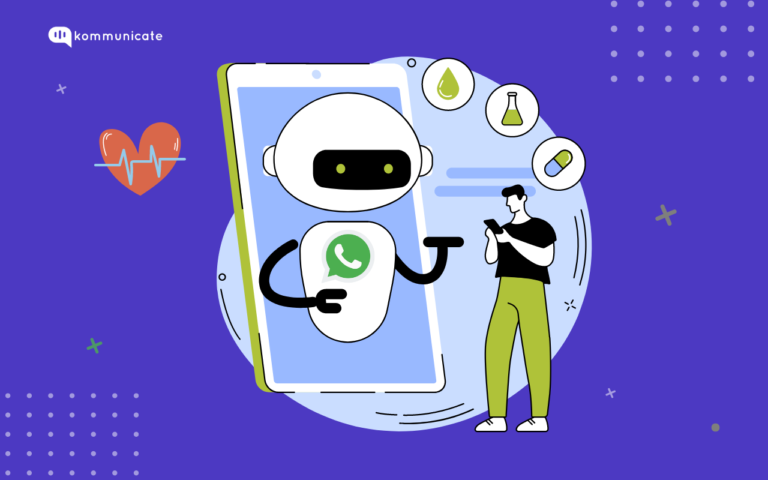There is a huge global issue with mental health. According to research, one in every four individuals deals with a mental health problem at some point during the year. Thankfully, counseling is becoming a crucial weapon in the fight against mental diseases in our day and age. Instead of using medical intervention, therapy, and particularly psychotherapy, addresses mental disease.
Although the term “therapy” can also apply to the physiotherapy process of physical rehabilitation, we shall be using the term “psychotherapy” in this context.
In this post, we go into great depth about therapy chatbots and how they might be used to deliver crucial mental health treatments.

1. What is a therapy chatbot?
Therapy chatbots are simply conversational AI-powered bots created to assist people with mental health issues, to put it simply. These chatbots may communicate with patients through websites and mobile apps. They have information that is supported by science that they have been programmed to utilize during these interactions. Because they can listen in on patient talks, assess their purpose, and respond accordingly, therapy bots are highly intriguing. Therapy chatbots may not be an exact substitute for a real therapist, but they can act as the first point of contact.
Patients can manage a variety of mental health conditions including anxiety, sadness, stress, and others with the assistance of therapy or mental health chatbots. They are capable of identifying symptoms, offering coping mechanisms, and even connecting patients with support groups and hotlines for mental health.
2. How do therapy chatbots work?
Cognitive Behavioral Therapy, sometimes known as CBT, is the methodology on which therapy bots and mental health chatbots are founded. Talk therapy between a therapist and a patient with a mental illness is referred to as CBT in psychotherapy. It entails recognizing incorrect or unhelpful thought patterns, emotional reactions, or behavioral patterns and swapping them out with their constructive equivalents.
Chatbots for mental health imitate these exchanges by posing direct queries. Therapy bots conduct further follow-up questions to engage the patient empathically based on the patient’s replies to these queries.
Since they enable therapy chatbots to have more complex discussions and comprehend trigger words in a patient’s speech, NLP and sentiment analysis are crucial. A decision tree is connected to each trigger word. The chatbot can then use this information to decide whether to give the patient advice or put them in touch with a specialist.
3. What mental health issues can a therapy chatbot address?
As we discussed earlier, therapy bots can be used to address a variety of mental health issues. Let us take a look at some of them.
a. Depression
When patients are troubled by deep, dark, and depressive thoughts, a therapy chatbot is trained to detect specific keywords in conversations. Depending on these keywords, the chatbot follows a strategic approach wherein patients are encouraged to redirect their thoughts. They are nudged to turn their thoughts from negative to positive, and this, in turn, becomes quite therapeutic for patients.
b. Anxiety
Therapy bots are designed to help patients with anxiety work around the clock. They provide patients with essential resources and interventions when anxiety triggers are detected. These chatbots can be designed to help patients manage their emotions and also aids in self-care.
c. Stress
Therapy chatbots are a boon for patients dealing with stress, especially since they are super easy to access. Therapy chatbots can prompt conversations and facilitate responses using the CBT framework. They encourage patients to talk about their emotions and thoughts, particularly those that are stress-inducing. The bots then make sense of these conversations and provide appropriate responses.
Wrapping Up
Mental health issues are highly prevalent today, and it’s only natural. The increasing stress on working individuals, parents, and children affects both physical and mental well-being in many ways and can, at times, be detrimental.
Therapy chatbots are critical in helping mitigate the mental health crisis. They can be used in multiple ways to regularly check in on patients suffering from anxiety, depression, and suicidal thoughts and avoid hazardous situations.
Therapy chatbots are the next big thing in psychotherapy and open up new possibilities in the mental health industry. The proliferation of digital technology is vital in the progress of therapy chatbots.
Curious to know more about therapy chatbots and how you can build one for your practice? Get in touch with the conversational AI experts at Kommunicate and discover how chatbots can revolutionize mental health.
